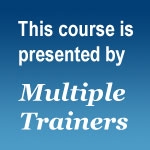
NVC Resources on Honesty
-
Join CNVC Certified Trainers, Raj Gill and Mary Mackenzie as they explore the Nonviolent Communication process of Empathy. This audio will support people with a basic understanding of Nonviolent Communication who want to deepen their ability for empathic presence.
-
Kelly Bryson, veteran and loved CNVC Certified Trainer, brings decades of experience to help you jumpstart your Mastery of Fear by using his unusual blend of experiential exercises, humor, empathy, original songs and stories, transformational truth telling, creativity and FRED (Frequency Resonation Energy Dynamics).
-
Join CNVC Certified Trainers and Mediators Jori and Jim Manske in an exploration of using Nonviolent Communication in the context of Mediation and Conflict Resolution.
-
When asking for support from another, you are most likely to enjoy receiving that support when the person giving support is giving from the heart—from a place of joy or delight. Inviting them to say "no" is a way of encouraging an authentic response, a response you can trust more fully.
-
Conflict is a normal and natural part of life. To varying degrees, it happens whenever two or more people consistently spend time together. Resolving conflict effectively and peacefully, in a way in which all parties feel respected and valued, does not feel natural for those of us who grew up with punitive, adversarial, or avoidant approaches to conflict. Eric offers some tips for approaching conflict.
-
Trainer Tip: If you make a specific and doable request as soon as you notice your needs, you'll have a better possibility of getting them met. It's also more likely your request will support the other person to contribute to your life. Make at least one specific, doable request of someone today as soon as you notice your needs.
-
Trainer tip: Be aware of times when you are judging others, demanding, making comparisons, or denying responsibility for your actions. Notice how these communication patterns affect your connection with other people.
-
In NVC we define needs as resources that life requires to sustain itself. All human beings have the same needs. The strategy is what we do to meet that need. Strategies are specific; we all choose unique ways to meet our needs. The more we can see the difference between the two, the more likely we are to resolve conflicts with ease. Today, look for opportunities to notice the difference in the given situation.
-
A chosen, interdependent world… In most cases, that's sure not the world we live in today, is it. But it could be the world we live in tomorrow. And you can choose to be part of bringing that better world to life – to be part of a gradual, joyful transformation – simply by using the dynamic, living power of Dialogue.
-
Trainer Tip: When we feel resentment toward others, we are harming our own emotional health. Surprisingly, when we own up to our part of an uncomfortable situation, we can release the pain and resentment. Such honesty can provide healing. Read on for a related anecdote of how this can play out.











